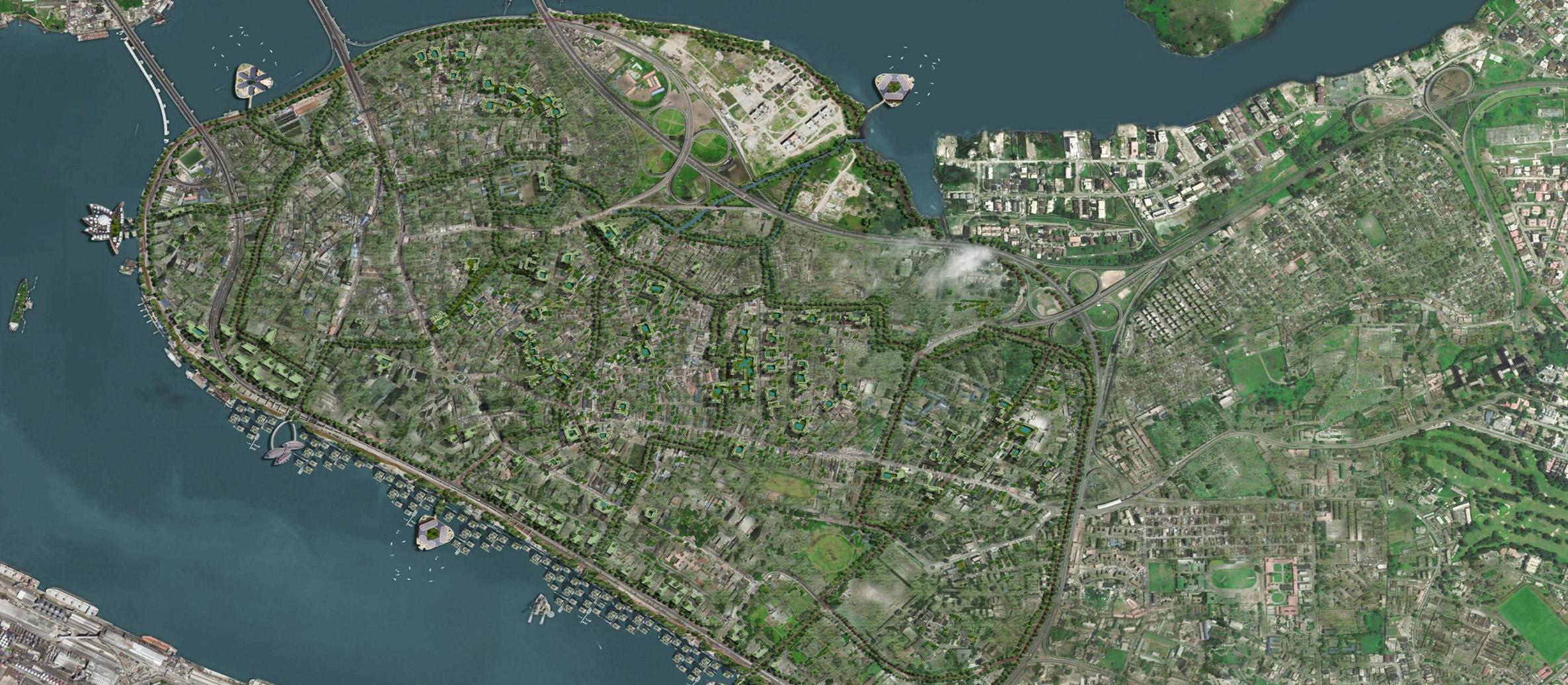
Location
Lagos, Nigeria, Africa
Overview
The historic heart of Lagos City, Lagos Island is a showcase of the region’s history; its built environment exhibits everything from monuments of a colonial past to tall buildings that mark the city’s recognisable skyline to brutalist or tropical modernist landmarks, dating from Lagos’ building boom of the 1970s. Today, the strategic island is the best-connected part of the city, sitting at the centre of Lagos’ transport network and serving as the city’s economic business centre and a vibrant hub for trade and exchange.
Despite these promising features and advantages, the 233,00 inhabitants of the island are exposed to climate change impacts and suffering the consequences of the partial implementation of the expired Lagos Metropolitan Master Plan. The population is even now facing issues such as slum development, run-down infrastructure, illegal conversion of approved buildings to other uses, overcrowding, flooding, and building collapse.
To resolve these issues and chart a pathway to a better future, the Ministry of Physical Planning and Urban Development in Lagos State embarked on a journey to restore the island’s glory and commissioned Dar to prepare the Model City Plan for Lagos Island.
Developed through extensive engagement with stakeholders across the Island, the master plan aims to enhance urban resilience and regeneration, enhance transportation systems, improve infrastructure, lower flooding risks, and foster the re-integration of the local indigenous districts, all while taking into consideration environmental factors and leveraging local resources.
Services
Markets
The project
Dar developed a strategic master plan for Lagos Island, covering the period up to 2040. To do so, our specialised planning and urban design team meticulously reviewed existing environmental, social, and economic information, and conducted a thorough analysis of the planning area of Lagos Island. Moreover, for 36 months and throughout the duration of the project, Dar engaged and consulted extensively with stakeholders across the Island, to create a master plan that embodies the aspirations of the people, capitalises on present opportunities, and overcomes constraints through creative and innovative solutions.
Building on this groundwork, Dar adopted the regenerative framework that goes beyond sustainability and resilience, envisioning regenerative growth for Lagos Island over the next twenty years.
The proposed framework provides alternatives to conventional planning processes, guidelines and tools across governance, infrastructure, economy, mobility, energy, informal neighbourhoods, water developments, and more. These alternatives were assessed by the Lagos State Government, the Ministry of Physical Planning and Urban Development, and stakeholders across Lagos Island – who collectively embraced the approach, which was then refined into an overall planning strategy for Lagos Island.
To guarantee better outcomes, the model city plan for Lagos Island was also aligned with strategies already in place, to ensure integrated city-wide planning and identify priority action areas and initiatives for further detailed planning. As such, the comprehensive project sought to align new land use development with complementary upgrades, new transport, and infrastructure. A strategic environmental and social assessment was also conducted to evaluate the potential environmental and social impacts of the model city plan, ensuring a broad and long-term perspective on sustainability, resilience and regeneration.
Throughout the project, Dar also engaged with ministry staff in a comprehensive capacity-building and transfer of knowledge program designed to immerse employees in the industry’s best practices and latest techniques in urban and regional development.
